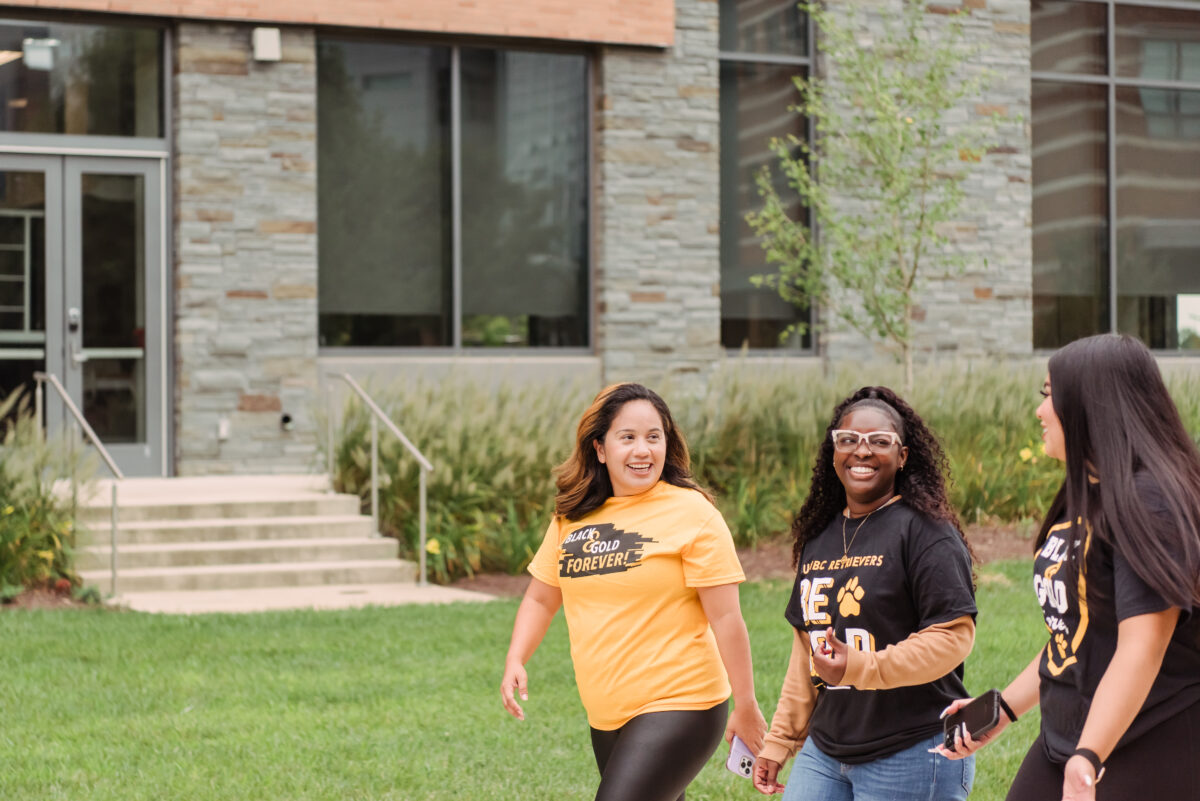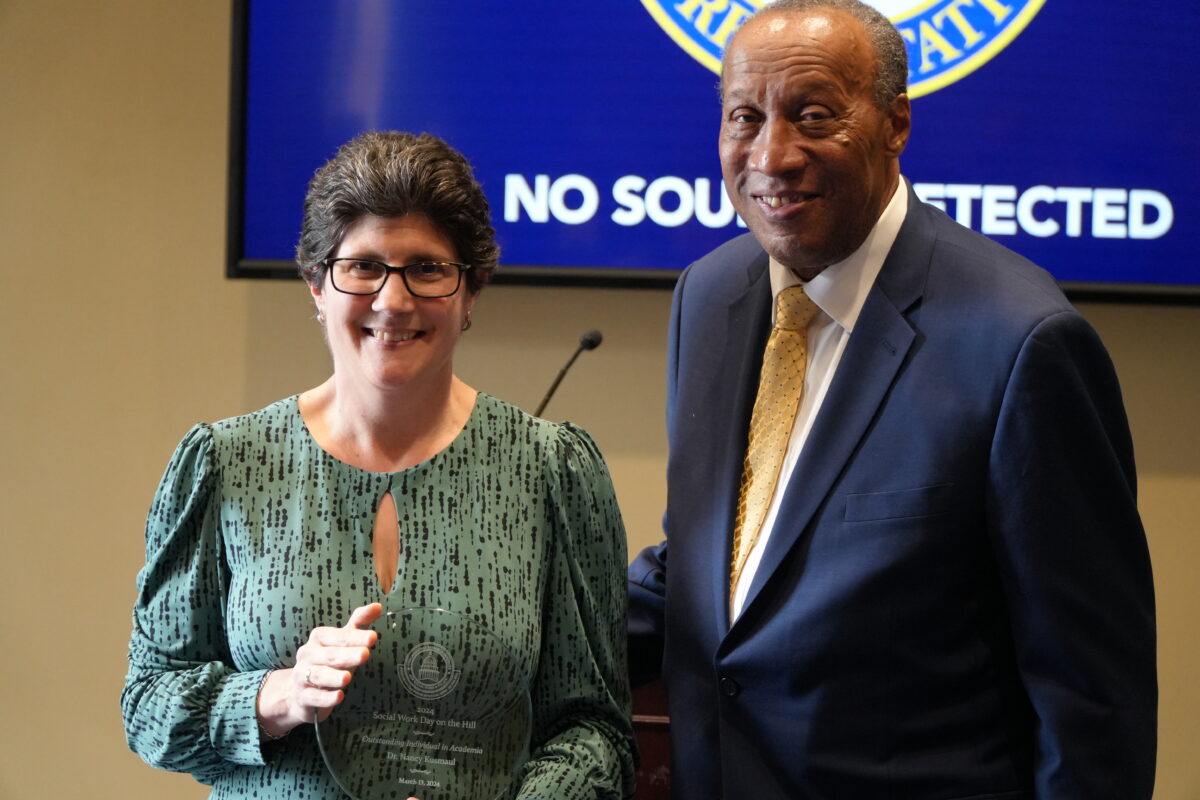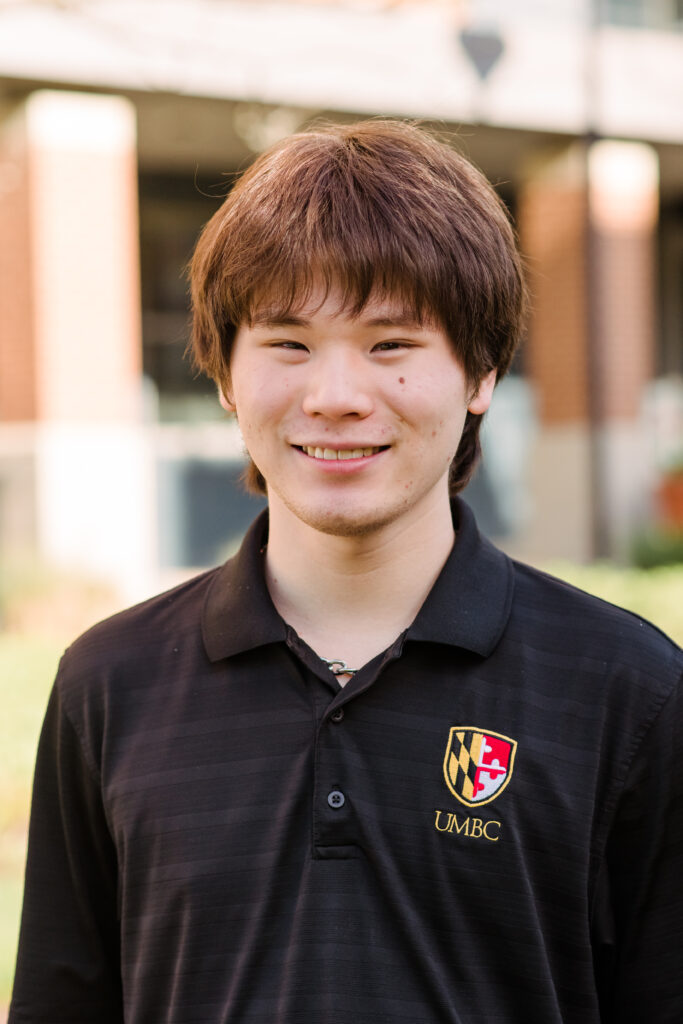A Commitment to Community Service
Providing undergraduate and graduate students with community service experiences is a vital part of UMBC’s culture. The University has recently been named to the President’s Higher Education Community Service Honor Roll with Distinction, which “recognizes colleges and universities nationwide that support innovative and effective community service and service-learning programs.” The Honor Roll is a program of the Corporation for National and Community Service, and is sponsored by the President’s Council on Service and Civic Participation, the USA Freedom Corps and the U.S. Departments of Education and Housing and Urban Development. The only other Maryland institution to receive this designation award is Loyola College.
The honor recognizes UMBC’s commitment to community service and service-learning, as expressed in the University’s mission and vision. According to Michele Wolff, director of the Shriver Center, “We sought this recognition as a means to bring national attention to the extraordinary work and real, positive changes that result from the sustained and effective collaborations UMBC faculty, staff and students engage in with our non-profit, community and school-based partners locally, throughout our region and across the nation. These partnerships address issues identified by community members in issues areas such as illiteracy, juvenile delinquency, access to health-related resources and achievement gaps among underserved K-12 students in science and mathematics.
“It’s not only the external community that benefits from these efforts,” adds Wolff. “Preliminary assessment suggests that UMBC students who engage in these types of outreach initiatives succeed in college at higher rates than students who did not participate in similar applied experiences.”
Examples of UMBC community service programs include:
K-16 Partnerships: UMBC was one of six University System of Maryland institutions that were part of an inquiry-based science NSF-funded program in Montgomery County high schools. Faculty and students worked with teachers in and out of the classroom on a variety of projects. For example, Manil Suri, professor of mathematics, assisted by his students, worked with a teacher to develop a lesson plan about chaos theory. Other students in science, technology, engineering and mathematics (STEM) programs worked with teachers in the classroom, bringing ideas for lessons and helping with labs. As a result of their experiences, several UMBC students decided to become teachers.
Field Trips: K-12 students, many of whom have never been on a college campus before, are regularly invited to come to UMBC to learn more about the college environment and that it is feasible that they can attend college. Students participate in hands-on labs, attend lectures and panel discussions, tour the campus and eat in the Dining Hall and The Commons.
Baltimore City STEM Partnerships: UMBC students assist National Academy Foundation-Baltimore High School students in preparing for assessment tests in algebra and English. The program is funded by Citi. At Federal Hill Preparatory, UMBC students assist teachers in incorporating more science content instruction and science enrollment programs into the school. The program at Federal Hill Preparatory receives funding from NASA-Goddard Space Flight Center.
Spring Break Trips: UMBC students travel to a variety of cities to help residents in need. Students spent a week in New Orleans, helping to build homes, removing debris, participating in outreach programs in elementary schools and volunteering at an animal shelter in the ongoing relief effort after Hurricane Katrina. Service trips such as this one are supported by UMBCServes, a campus-wide service organization coordinated through UMBC’s Office of Student Life, the Office of Residential Life, The Shriver Center, various student organizations, Athletics and Off-Campus Student Services.
Peaceworker Program: The Shriver Peaceworker Program supports a select group of returning Peace Corps volunteers as they pursue graduate degrees at UMBC, engage in community service and participate in ongoing ethical reflection and development. The goal is to educate and train a new generation of citizen leaders who are able to critically, creatively and responsibly address the complex economic, social and cultural problems confronting the United States—and in particular its cities—today. While nearly 85 percent of Peaceworkers Fellows originally come from outside the Baltimore region, 60 percent have settled and remain engaged in service careers in local communities.
(7/21/08)
© 2007-08 University of Maryland, Baltimore County 1000 Hilltop Circle, Baltimore, MD 21250 410-455-1000



